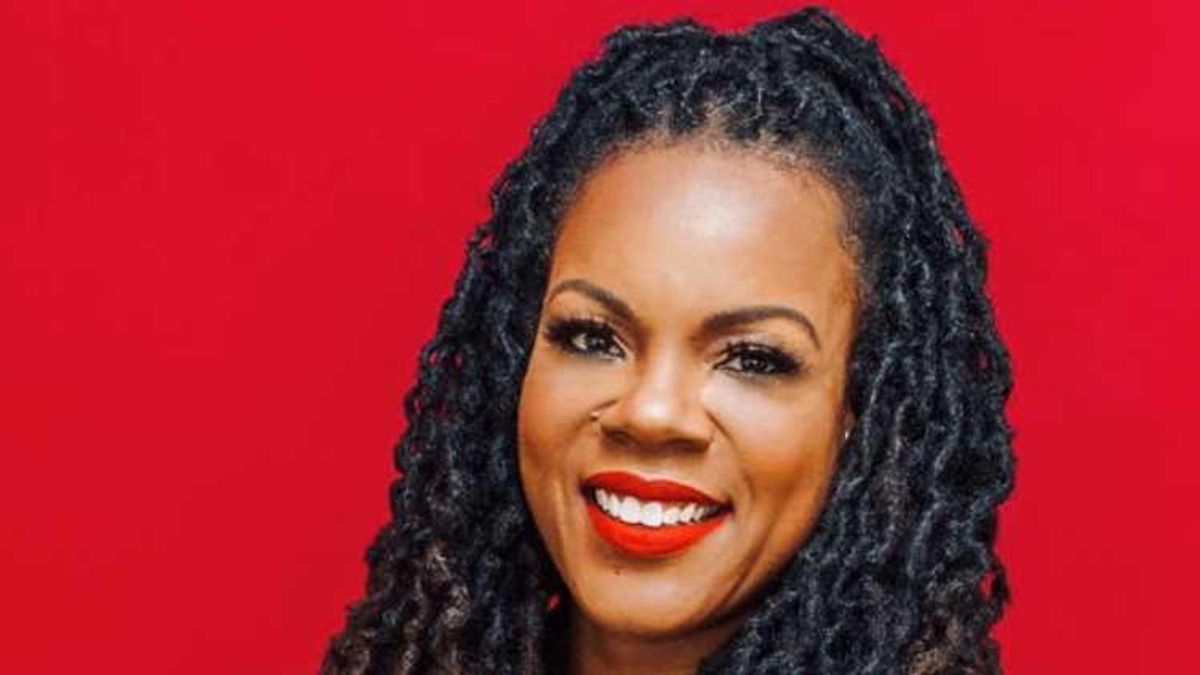Anyone who's been paying attention for the last few, well, decades, knows that women, on average, earn less than men. But there's less awareness of how sexual orientation, gender identity, race, and other factors affect the gender pay gap. The Institute for Women's Policy Research is out to change that.
"We all hear 80 cents on the dollar," says C. Nicole Mason, the African-American lesbian who serves as Washington, D.C.-based IWPR's president and CEO. But that figure has come to be ignored, and Mason wants to address it by highlighting how other kinds of discrimination affect the pay gap.
Starting today and continuing through March 31, Equal Pay Day, IWPR will be sharing infographics, videos, and other content in a multimedia campaign to underline these intersections. Equal Pay Day marks the date when women's pay catches up with men's from the previous year.
Some of the statistics IWPR will be putting out there:
The unemployment rate for transgender people is three times higher than that of the general U.S. workforce, and it's four times higher for transgender people of color. Nearly one-third of trans respondents to a national survey said they were living in poverty, compared to 12 percent in the U.S. population as a whole.
Transgender women report a 32 percent decline in earnings after they transition.
Lesbians on average earn less than gay or straight men but more than heterosexual women. However, that doesn't take into account the discrimination faced by certain lesbians, especially those who are gender-nonconforming, nor does the statistic reflect race or ethnicity.
"There is definitely a penalty and loss of earnings" for various groups of LGBTQ women, Mason says. But there has not been a lot of attention paid to why.
"It's not random," she says. "It's because of sexual orientation and gender identity." And women of color are hit harder, she says.
The pay differential has a ripple effect, she says. "It translates to less money later on, for retirement," she points out. And less money for basic necessities like housing and food, and to ride out storms like the one we're in now, with many businesses shut down due to the COVID-19 crisis. "It's no small import," Mason says.
In addition to looking at the effect of sexual orientation, gender identity, race, and ethnicity on the gender pay gap, it will consider such factors as immigrant status and having been incarcerated. And it will include such engaging videos as those at the end of this article, one featuring children and another spotlighting the athletes of the WNBA and the World Cup champion U.S. women's soccer team.
Mason, who at 43 is the youngest person currently leading a D.C. think tank, has direct experience with economic inequality. "I grew up poor, working-class in Los Angeles," she says. "I've really seen firsthand economic disparity and its effect on women's lives."
She stepped into the top post last fall at IWPR, which Ms. Magazine has called "the leading think tank on issues of importance to women." She succeeded Heidi Hartmann, who cofounded the institute and remains a senior economist there. "Since its inception [in 1987], the Institute's research and policy papers have influenced every administration, regardless of party, and have been consistently used by activist groups to inform their members and underpin demands for action with solid data," Ms. observed in an article on Hartmann's semi-retirement.
Mason, who was previously executive director of the Women of Color Policy Network at New York University's Robert F. Wagner Graduate School of Public Service, plans to continue and build on that work. "We are looking to leverage our research for policy change and action -- using research to drive change in people's lives," she says. And to make sure that's done in an intersectional manner, she adds.
"In this social and political moment, it's really important that we connect the dots across communities," she says.
For more information, visit IWPR.org.


















































































